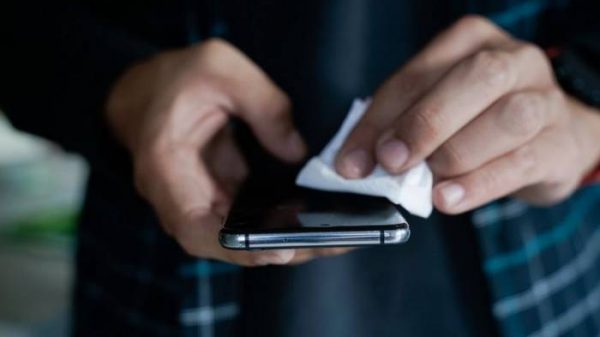Covid virus ‘survives for 28 days’ in lab conditions
- Update Time : Monday, October 12, 2020

FBD Desk:
These results highlight the need to wash hands as well as touchscreens regularly
The virus responsible for Covid-19 can remain infectious on surfaces such as banknotes, phone screens and stainless steel for 28 days, researchers say.
The findings from Australia’s national science agency suggest SARS-Cov-2 can survive for far longer than thought, reports BBC.
However, the experiment was conducted in the dark. UV light has already been shown to kill the virus.
Some experts have also thrown doubt on the actual threat posed by surface transmission in real life.
The coronavirus is mostly transmitted when people cough, sneeze or talk.
But there is also evidence that it can also be spread by particles hanging in the air. It is also possible someone could get Covid-19 by touching infected surfaces such as metal or plastic, according to the US Centers for Disease Control. This is believed to be much less common, however.
What does the study say?
Previous laboratory tests have found that SARS-Cov-2 can survive for two to three days on bank notes and glass, and up to six days on plastic and stainless steel, although results vary.
However, the research from Australian agency CSIRO found the virus was “extremely robust,” surviving for 28 days on smooth surfaces such as glass found on mobile phone screens and both plastic and paper banknotes, when kept at 20C (68F), which is about room temperature, and in the dark.
In comparison, the flu virus can survive in the same circumstances for 17 days.
The study, published in Virology Journal, also found SARS-Cov-2 survived for less time at hotter temperatures than cooler temperatures; it stopped being infectious within 24 hours at 40C on some surfaces.
It also stayed longer on smooth, non-porous surfaces than on porous materials such as cloth, which was found not to carry any infectious virus past 14 days.
What are the disagreements about?
Prof Ron Eccles, former director Common Cold Centre at Cardiff University, criticised the study and said the suggestion that the virus could survive for 28 days was causing “unnecessary fear in the public”.
“Viruses are spread on surfaces from mucus in coughs and sneezes and dirty fingers and this study did not use fresh human mucus as a vehicle to spread the virus,” he said.
“Fresh mucus is a hostile environment for viruses as it contains lots of white cells that produce enzymes to destroy viruses and can also contain antibodies and other chemicals to neutralise viruses.
“In my opinion infectious viruses will only persist for hours in mucus on surfaces rather than days.”
In a paper published by the Lancet in July, Emanuel Goldman, professor of microbiology at Rutgers University, said “the chance of transmission through inanimate surfaces is very small”. He said studies that suggested a significant risk had been designed with “little resemblance to real-life scenarios”.
Last week Monica Gandhi, a professor of medicine at the University of California, said the coronavirus did not spread via surfaces.

















